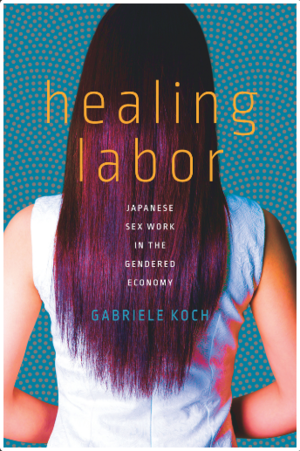Contemporary Japan is home to one of the world's largest and most
diversified markets for sex. Widely understood to be socially
necessary, the sex industry operates and recruits openly, staffed by
a diverse group of women who are attracted by its high pay and the
promise of autonomy--but whose work remains stigmatized and
unmentionable. Based on fieldwork with adult Japanese women in
Tokyo's sex industry, Healing Labor explores the relationship
between how sex workers think about what sex is and what it does and
the political-economic roles and possibilities that they imagine for
themselves. Gabriele Koch reveals how Japanese sex workers regard sex
as a deeply feminized care--a healing labor--that is both necessary
and significant for the well-being and productivity of men. In this
nuanced ethnography that approaches sex as a social practice with
political and economic effects, Koch compellingly illustrates the
linkages between women's work, sex, and the gendered economy.

